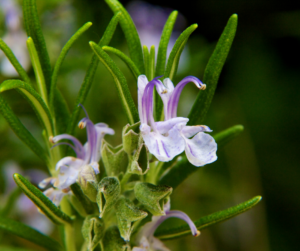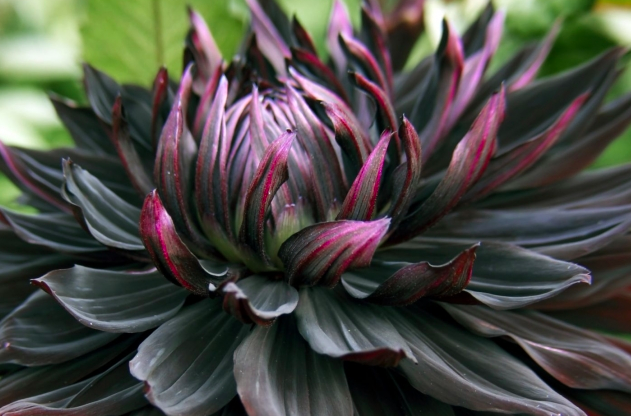
Rosemary Herb – A symbol of Remembrance
I don’t think there is an herb known to humankind that has a longer or more interesting history than the Rosemary herb. It is a native of the warm Mediterranean countries, growing wild along their coasts. It makes sense that its Latin name, Rosmarinus means ‘dew of the sea’.
All About Rosemary
Rosemary is an evergreen herb with aromatic, short needle-like shaped leaves. In the northern areas of the United States and in Canada, rosemary is considered a tender perennial. It should be potted up and brought indoors to survive our cold winters. I have found rosemary a little tricky to overwinter, as it needs to have good drainage, good airflow, and little watering. I have found that it likes to be misted occasionally.

In January or early February, it blooms whorls of delicate small pale blue or light pink flowers. I have been growing rosemary in pots to bring indoors for many years trying to keep it healthy from one season to the next with some successes. My disappointing failures have been many with only a handful of times my ‘indoor’ rosemary has delighted me with its blooms.
Rosemary Folklore
Legends and folklore for rosemary date back thousands of years. The Ancient Greeks believed Rosemary improved memory; students inhaled its strong aroma while studying for exams. It was also believed to have strong powers against evil in the Middle Ages. People put sprigs of this herb under their pillows to ward off evil spirits and protect them from nightmares. So great was this power, churches hung rosemary on the walls and burned it like incense at the altar. Being a strong antiseptic, it was used to purify and cleanse the air of bedchambers of the sick and dying.

Over the ages, Rosemary was also considered a symbol of love. Young brides would wear wreaths of rosemary and flowers, sprigs in their hair, or in their bouquets as a symbol of their dedicated love. Even today, rosemary is still used by some brides in their adornments and decorations.
Rosemary is a Workhorse
Rosemary also has been used as flavouring herb since the time of the early Greeks and Roman. This fragrant herb adds amazing taste to roasted lamb and wild meats, soups, stews, and vegetables, especially potatoes. Its many uses go beyond culinary. The pungent scent of rosemary is excellent in moth-repellent sachets. It makes a marvelous rinse for dark hair that stimulates the scalp to help prevent dandruff. A strong infusion of rosemary and water can be used as a mouthwash to kill bacteria or gargle to soothe a sore throat.
A Garden Favorite
Rosemary is one of my favourite herbs. It is particularly prized by many Italian, Greek, and Portuguese people. AnnaMaria, my Italian gardener friend, told me that she would be very upset if someone came and took her plants, but she would fight to the end to save and keep her treasured rosemary.

A line from William Shakespeare’s Hamlet, IV,5 ~ ‘There’s Rosemary, that’s for remembrance. Pray you, love, remember.’ Since Rosemary is the herb of remembrance, slip a sprig of Rosemary in your holiday cards and letters. I plan to make use of this special way to let my friends and family know they are being remembered this season.





About The Author: Nancy Abra
The family kitchen garden has always been a big part of my life from the early days growing up on a farm to current days gardening near Thorndale, Ontario.
I have honed my gardening knowledge with various courses including a certificate in Horticulture from the University of Guelph, ongoing training with the London Middlesex Master Gardeners, active membership with the local Horticultural Society and as a volunteer gardener at Fanshawe Pioneer Village, It has always been important to me to feed my family from the best of my garden or from locally grown produce. For almost 50 years of preserving, canning, pickling, and using heirloom recipes including some of my own creations, I have developed tasty preserves for my family and friends which I market locally with the brand name "From My Garden".
More posts by Nancy Abra